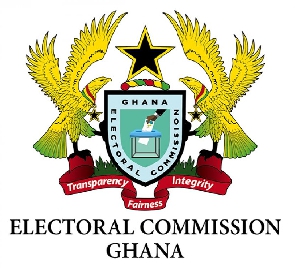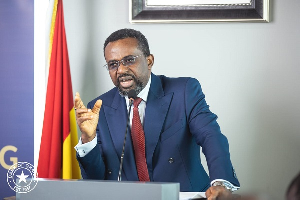It has been the standard practice for every deliberative, decision making or parliamentary body to have its membership stand at an odd number. This is to avoid a situation where a body is equally divided on different sides of a decision or a motion.
In jurisdictions where an even-numbered decision-making body is practiced, there is a system in place to break the tie. Such ties are broken by allowing an ex officio member to cast a vote, like in the case of the Senate of the United States where the Vice President of the country is given voting right as an ex officio. Another method that is used for breaking a tie is by giving the Speaker or chairperson an original vote, and in some cases casting vote (second vote). The British House of Commons exemplified that. Such votes are not exercised capriciously or whimsically, the exercising of casting vote is governed by the Dennison's rule in the case of the House of Commons in the UK and the Roberts' rule in the United States' jurisdiction.
In the case of Ghana Parliament, the Speaker does not have an original or casting vote. The Vice President and non Members of Parliament who are ministers are ex officio of Ghana Parliament and none of them has a voting right in Parliament. This means that in the case of Ghana Parliament, we have no system in place to break a tie whenever there is a deadlock. Hence in Ghana Parliament, anytime there is a tie or deadlock in a motion on the floor, the motion is deemed lost.
Therefore as a nation, we should be thinking along the line of having odd-numbered seats or membership in Parliament as standard practice, so as not to intentionally create a condition for ‘deadlocks’ or tie on motions. Formerly this wouldn't have been a matter of concern because our Parliament has always had a clear majority and minority. But the 2020 Presidential and Parliamentary election is indicating that there could be a change in that trend, and a contrary situation may arise.
The 7th Ghana Parliament has odd-numbered membership, i.e. 275, with a clear majority and minority bench. The 2020 parliamentary election which is birthing the 8th Parliament currently stands at 137 seats for NDC and NPP at 137, making 274 (evenly numbered), with no clear majority or minority, and 1 independent candidate totaling 275 (odd-numbered). In our system of politics where partisan consideration overrides all, it is fairly predictable that all things being equal there would be a deadlock in key motions on the floor of the House. The only glimpse of respite for breaking the deadlock is the independent member-elect who is a classical justification for an odd-numbered membership for a Parliamentary body. This, though not the most comfortable situation for any government (because a one-person tiebreaker is a volatile situation), at least provides a small respite.
The situation may turn when a constituency is finally carved in the Guan District for the people of Santrokofi, Akpafo, Likpe, and Lolobi, it would bring the seats of Parliament to the total of 276, an even-numbered membership. That may erode the little glimpse of hope provided by the independent candidate, should that seat go to the NDC, which is quite probable looking at the 'political geography' of it. The implication is that at any and every plenary, when a motion is put to vote, with the independent candidate voting on the side of the NPP and NDC winning the Guan constituency, we are likely to get 138:138 votes at each end of the motion, bringing it to a deadlock and hence motion deemed lost.
Looking at how politically polarized and charged our system and Parliament is, decisions in Parliament would be worse off, with many deadlocks and frustrating situations. It will stifle and suffocate executive decisions; the state could become quite ungovernable.
The aforementioned would give rise to two schools of thought; i.e. the "necessary evil" doctrine and the doctrine of justice. The necessary evil apologist would argue that it would not be in the interest of smooth governance to have Guan constituency created and its MP elected, and that it would be in the interest of relatively smooth and stable governance to ditch the right of Guan constituency for the overall good of governance, at least for the life of the 8th Parliament.
On the other hand, John Rawl provides a sharp rebuttal. In his theory of justice, he argues that "The rights secured by justice are not subject to political bargaining or to the calculus of social interests... an injustice is tolerable only when it is necessary to avoid an even greater injustice." Simply, the right of the people of Santrokofi, Akpafo, Lolobi and Lipke cannot be ditched because of "social calculation" of smooth governance.
Whatever be the case, I still have faith in our fate as a country, that we would overcome this hurdle. We must, however, start considering always having our Parliamentary seats standing at odd number, since we have no system for breaking a deadlock in situations like what is arising.
The writer, Awotunde Awosika, is a Sociopolitical Commentator/Activist, a Youth Development Practitioner, and a former Speaker for UCC Students' Parliamentary Council.
Edited by Faustina Awosika (Mrs.), a Gender Activist.
Opinions of Thursday, 24 December 2020
Columnist: Awotunde Awosika















